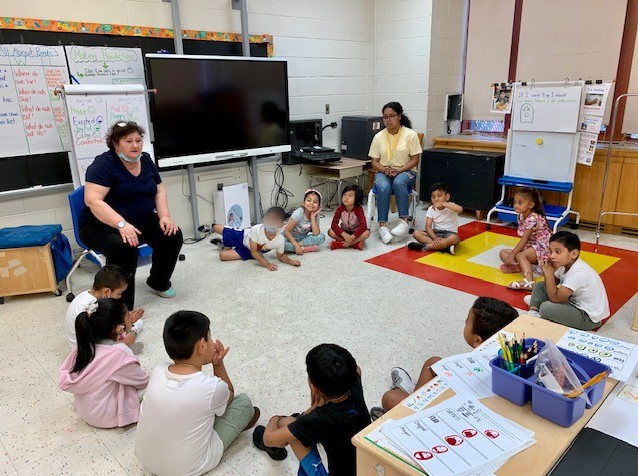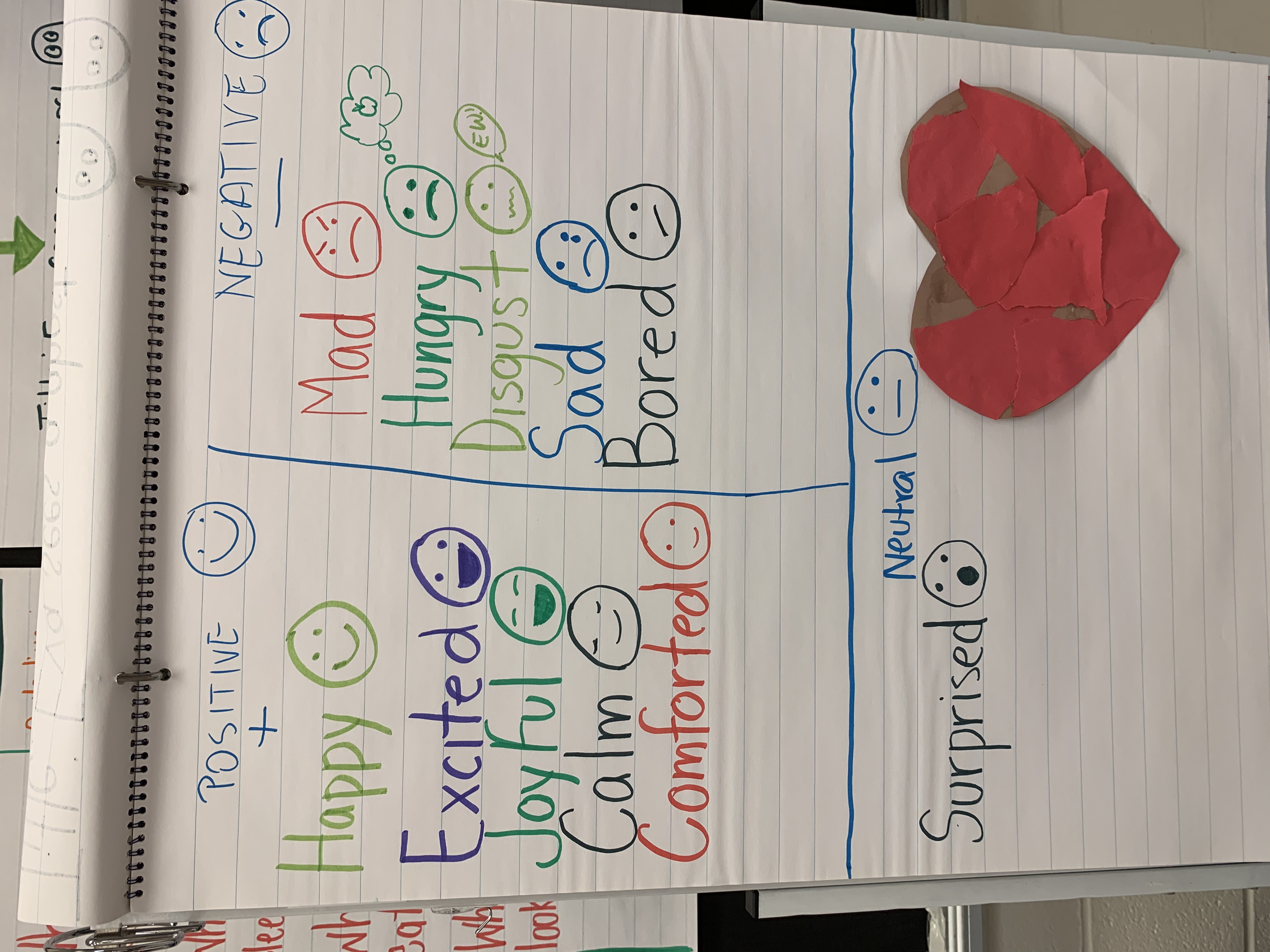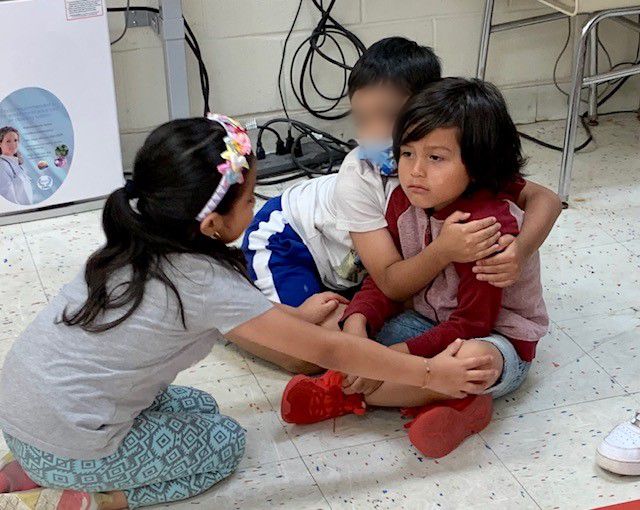A Lesson with the Littles
On a visit to our Summer Rising program at Brooklyn's PS 24, I watched kindergartners work to repair harm and restore the community.
On a visit to our Summer Rising program at Brooklyn's PS 24, I watched kindergartners work to repair harm and restore the community.
Now that my own kids are in their late teens, I especially love to be with “the littles.” So I’d been looking forward to my visit with the young ones at Morningside Center’s Summer Rising program at PS 24 in Sunset Park, Brooklyn.
 My first stop was kindergarten. I walked into the room and immediately got the sense that I was interrupting something – like stumbling into a family argument that you weren’t supposed to witness.
My first stop was kindergarten. I walked into the room and immediately got the sense that I was interrupting something – like stumbling into a family argument that you weren’t supposed to witness.
With older students, Morningside uses a circle format for our activities. But circle can be hard to sustain with the young ones. So I was caught off-guard to find these littles all in a circle amid a pretty intense SEL lesson facilitated by Ms. Tosia, a teacher who has been with Morningside for over well over a decade.
 Tosia was explaining different kinds of emotions – sad, happy, surprised, angry (see my photo). Then she asked her students, “If a child gets hit, how are they going feel?” The kids offered some answers. They would cry. They’d feel sad. They’d feel scared.
Tosia was explaining different kinds of emotions – sad, happy, surprised, angry (see my photo). Then she asked her students, “If a child gets hit, how are they going feel?” The kids offered some answers. They would cry. They’d feel sad. They’d feel scared.
Next, Tosia seemed to change the subject. She asked, “What do we do with our hands?” Here was a question the children weren’t expecting.
Tosia mimed the act of writing. The children yelled out “writing!” Next, she mimed waving. They yelled out “waving!”
Then, Tosia offered that “hands can also be used to comfort.” When someone is hit and they're sad, she said, they might need comforting.
Immediately, a boy turned to the child sitting next to him, who, I surmised, had just been hit by a classmate, and offered him a warm hug. Others joined in.
 Then the teacher, well-versed in Morningside’s social and emotional learning curricula, took it a step further. She asked, “Who else might be sad when someone gets hit?” The littles looked around.
Then the teacher, well-versed in Morningside’s social and emotional learning curricula, took it a step further. She asked, “Who else might be sad when someone gets hit?” The littles looked around.
“The kid who did the hitting might feel bad too. Now she has a lot of emotions, so we might want to comfort her as well,” offered Tosia.
While the four- and five-year-olds were busy restoring their community and repairing harm – albeit minimal harm - I knew that Emma Gonzalez was with us in that room.
Emma pioneered many of Morningside Center’s approaches to social and emotional learning right there at PS 24, beginning in the 1980s. Her way was to listen to young people and let them lead. And from that strategy emerged such inventive approaches as “Peace Helpers,” a program that supports young children in comforting and resolving conflicts among their classmates. Emma and the PS 24 community also invented student-facilitated “Diversity Panels” many years before “diversity, equity, and inclusion” was prevalent. Emma helped shape Morningside’s work for well over three decades, including, finally as a Board member. She died a little over a year ago. We remember her here.
I stayed in that kindergarten classroom a little while longer, working with the children on a puzzle. I took some more pictures and then explained that I had to leave. As I stood at the door, Tosia yelled to the kids, “What can we do with our hands?” And she and 15 littles, all smiles, waved a warm goodbye.
Cassie Schwerner is executive director of Morningside Center.